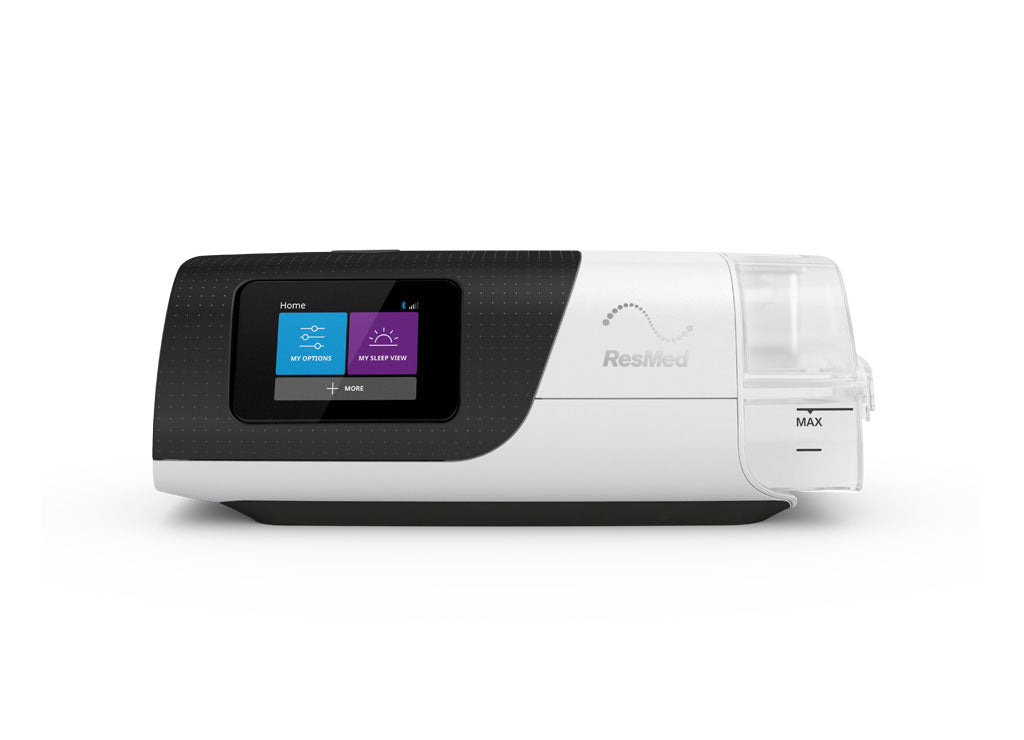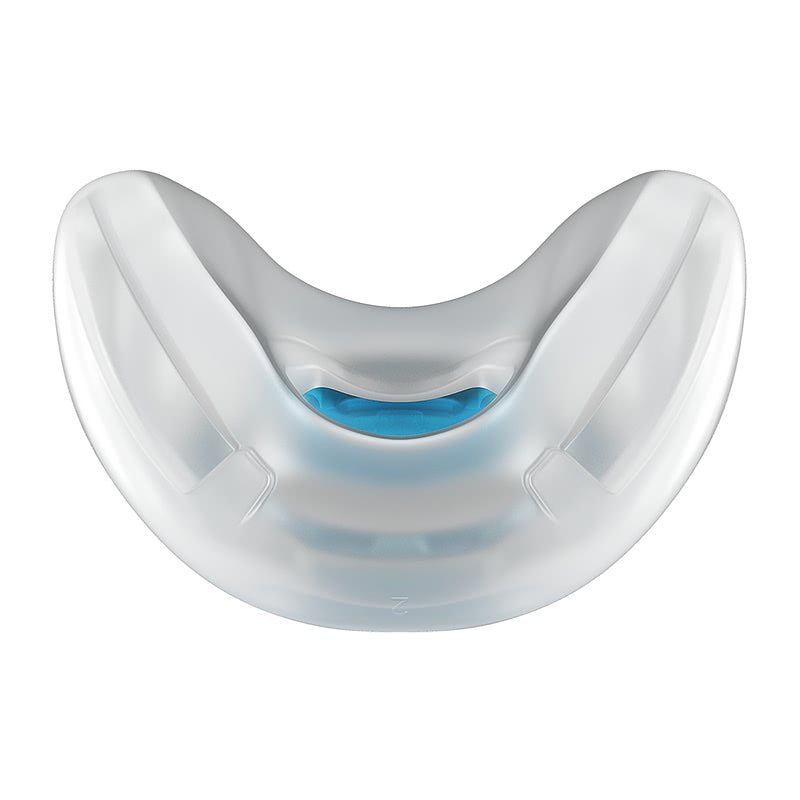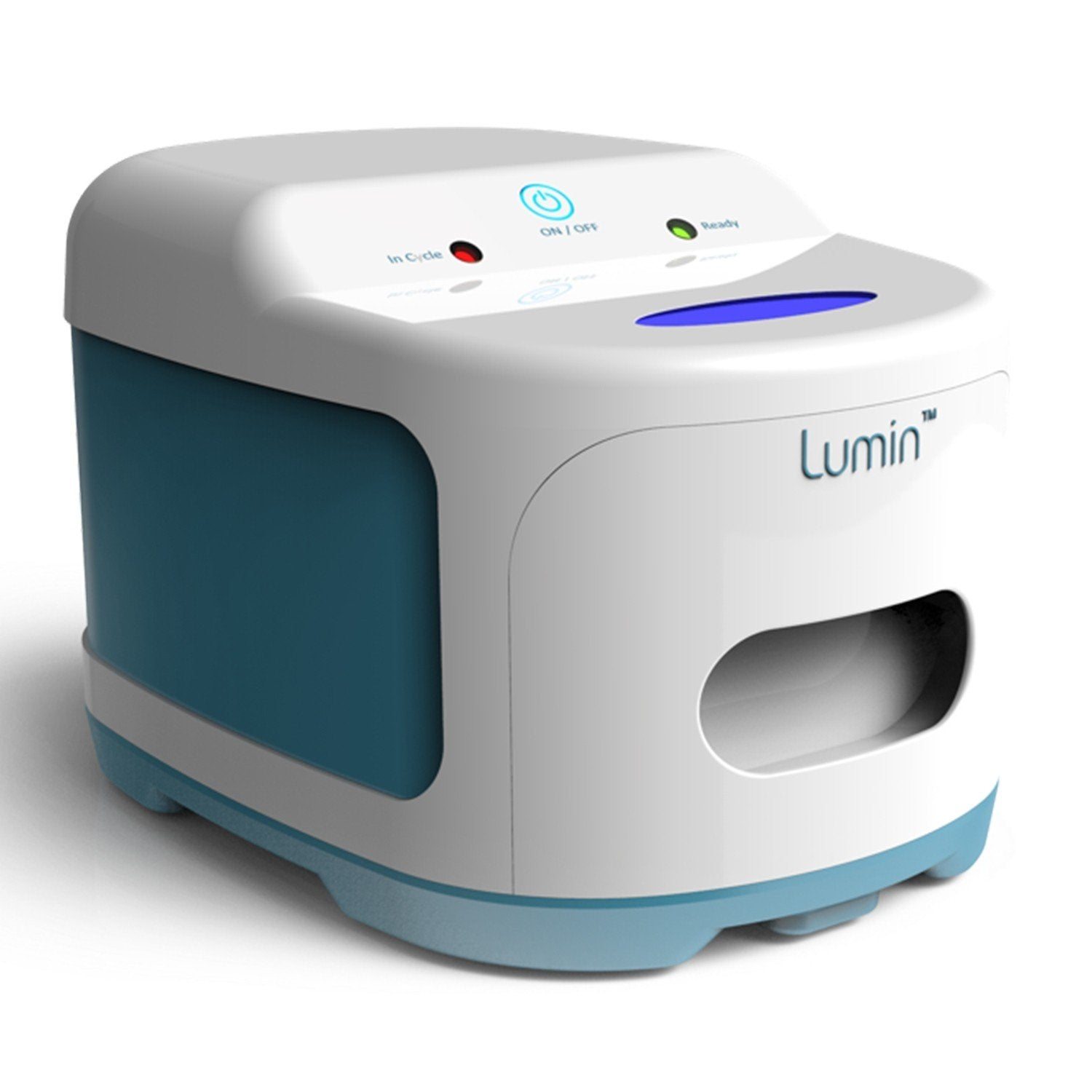
Appareil CPAP : description, fonctionnement, avantages et inconvénients
Share
Les appareils CPAP, ou appareils à pression positive continue, sont devenus une option thérapeutique courante pour les personnes souffrant d'apnée obstructive du sommeil. Ces dispositifs médicaux utilisent la pression de l'air pour maintenir les voies respiratoires ouvertes pendant le sommeil, prévenant ainsi les interruptions respiratoires et améliorant la qualité globale du sommeil. Dans cet article, nous aborderons ce que sont les appareils CPAP, leur fonctionnement, les différents types disponibles, l'importance des filtres CPAP, leurs composants, leurs avantages et leurs effets secondaires potentiels, des conseils pour une utilisation confortable, comment choisir le bon appareil et d'autres informations pertinentes. Que vous envisagiez une thérapie CPAP ou que vous utilisiez déjà un appareil CPAP, cet article vous permettra de comprendre en détail les appareils CPAP et de prendre des décisions éclairées pour votre sommeil.
Comprendre les machines CPAP
Les appareils CPAP sont des dispositifs médicaux spécialement conçus pour fournir un traitement par pression positive continue (PPC). Ces appareils sont principalement utilisés dans le traitement de l'apnée obstructive du sommeil, un trouble du sommeil caractérisé par des collapsus récurrents des voies respiratoires pendant le sommeil. Le traitement par PPC vise à maintenir une respiration régulière, à prévenir les épisodes d'apnée du sommeil et à améliorer la qualité globale du sommeil. En délivrant un flux continu d'air sous pression, les appareils CPAP maintiennent les voies respiratoires ouvertes, permettant aux personnes souffrant d'apnée du sommeil de respirer plus facilement et de profiter d'un sommeil ininterrompu.
Qu'est-ce qu'une machine CPAP ?
Un appareil CPAP (appareil à pression positive continue) est un dispositif médical utilisé dans le traitement de l'apnée obstructive du sommeil (AOS). L'AOS est un trouble du sommeil caractérisé par une obstruction totale ou partielle des voies respiratoires pendant le sommeil, entraînant un manque d'oxygène, des ronflements et des troubles du sommeil. Les appareils CPAP fonctionnent en délivrant un flux continu d'air sous pression à travers un masque qui couvre le nez ou la bouche, ou les deux.
La pression positive continue (PPC) délivrée par l'appareil agit comme une attelle, maintenant les voies respiratoires ouvertes et permettant une circulation d'air libre. Cette pression empêche l'affaissement des voies respiratoires, réduisant ainsi les épisodes de respiration intermittente ou superficielle, fréquents dans l'apnée du sommeil. Le réglage de la pression de l'appareil est personnalisé en fonction des résultats de l'étude du sommeil et des besoins thérapeutiques spécifiques de chaque patient.
La thérapie CPAP avec un appareil CPAP aide les personnes souffrant d'apnée du sommeil à mieux respirer pendant leur sommeil, réduisant ainsi les ronflements, améliorant le taux d'oxygène et la qualité globale du sommeil. De plus, elle peut soulager les symptômes associés à l'apnée du sommeil, tels que les maux de tête matinaux, la somnolence diurne excessive et les difficultés de concentration.
Il est important de noter que les appareils CPAP sont des dispositifs médicaux réglementés et sont généralement prescrits par les prestataires de soins de santé après une évaluation approfondie de l'état d'apnée du sommeil de l'individu.
Comment fonctionnent les machines CPAP ?
Les appareils CPAP fonctionnent en délivrant une pression positive continue (PPC) aux personnes souffrant d'apnée du sommeil. Grâce à un masque porté sur le nez, la bouche ou les deux, les appareils CPAP fournissent un flux d'air comprimé constant, contribuant ainsi à maintenir les voies respiratoires ouvertes et à prévenir les épisodes d'apnée pendant le sommeil.
La pression positive générée par l'appareil agit comme une attelle pneumatique, soutenant les voies respiratoires et les empêchant de s'affaisser. Ce flux constant d'air sous pression assure un débit d'air constant, permettant aux personnes souffrant d'apnée du sommeil de respirer confortablement toute la nuit.
Lors d'un traitement CPAP, la pression d'air est personnalisée pour répondre aux besoins spécifiques de chaque individu, déterminés par les résultats de l'étude du sommeil et les conseils du professionnel de santé. Ce réglage personnalisé de la pression garantit une efficacité optimale du traitement et une qualité de sommeil optimale.
Les appareils CPAP fonctionnent silencieusement et la pression générée peut être ajustée pour s'adapter au confort de chacun. Ils sont équipés de diverses fonctionnalités, telles que des humidificateurs chauffants, des options d'ajustement de masque et des fonctions de suivi des données, qui contribuent à l'efficacité globale du traitement et à l'expérience utilisateur.
En fournissant une pression positive des voies respiratoires, les appareils CPAP contribuent à soulager les symptômes de l'apnée du sommeil, à améliorer le taux d'oxygène, à réduire les ronflements et à favoriser une meilleure qualité de sommeil et un bien-être général. Utilisés régulièrement et entretenus correctement, les appareils CPAP peuvent améliorer considérablement la vie des personnes souffrant d'apnée du sommeil.
Différents types de machines CPAP
Il existe différents types d'appareils CPAP, chacun offrant des caractéristiques et des avantages uniques pour répondre aux besoins de chacun. Parmi les types courants d'appareils CPAP, on trouve les appareils à réglage automatique, les appareils à deux niveaux de pression et les appareils de voyage. Comprendre ces différents types permet de prendre des décisions éclairées concernant les options thérapeutiques et de choisir l'appareil le mieux adapté à ses préférences et à son mode de vie.
CPAP à réglage automatique
Les appareils CPAP auto-ajustables, aussi appelés APAP, calibrent automatiquement la pression d'air en fonction de la respiration de l'utilisateur. Ce type d'appareil fournit une pression positive continue des voies respiratoires, s'adaptant ainsi aux besoins spécifiques de l'utilisateur en matière de sommeil. La technologie avancée de ces appareils assure un débit d'air optimal, améliorant ainsi la qualité globale du sommeil. En proposant un traitement personnalisé, les appareils CPAP auto-ajustables s'adaptent aux changements de position de sommeil et aux épisodes d'apnée, en fournissant une pression d'air constante et en réduisant le risque de problèmes de santé liés à l'apnée du sommeil.
BiLevels et BiPAP®
Les appareils BiPAP, également appelés BiLevels, fournissent une pression d'air spécifique à l'inspiration et à l'expiration. Ce type d'appareil est adapté aux personnes souffrant d'apnée obstructive du sommeil, d'apnée centrale du sommeil ou de troubles respiratoires. Les différents niveaux de pression des appareils BiPAP s'adaptent à différents schémas respiratoires, garantissant ainsi une meilleure adaptation à chaque utilisateur. Ces appareils conviennent aux personnes nécessitant une pression d'air plus élevée à l'inspiration ou éprouvant des difficultés à expirer en pression. En définitive, la thérapie BiPAP améliore la qualité globale du sommeil en fournissant un soutien personnalisé de la pression d'air.
Machine de voyage
En voyage, il est essentiel de garantir un traitement ininterrompu, d'où l'intérêt des appareils CPAP de voyage. Compacts et légers, ces appareils portables facilitent le transport. Ils permettent aux utilisateurs de suivre un traitement du sommeil régulier loin de chez eux, favorisant ainsi de meilleurs résultats de santé grâce à l'observance thérapeutique. L'efficacité des appareils CPAP de voyage en fait un choix idéal pour les voyageurs fréquents souhaitant une thérapie continue pendant leurs déplacements.
Importance des filtres CPAP
Les filtres CPAP jouent un rôle crucial dans le maintien de la qualité de l'air et empêchent la pénétration de particules nocives dans l'appareil. Ils garantissent un air pur et exempt d'irritants, d'allergènes et d'autres substances nocives. L'utilisation de filtres de haute qualité réduit efficacement les risques de problèmes respiratoires et préserve l'efficacité de votre appareil CPAP. Changer régulièrement les filtres est essentiel pour une utilisation optimale de votre appareil CPAP et pour prévenir les complications potentielles liées à l'accumulation de débris et d'allergènes.
Rôle et fonctionnalité des filtres CPAP
Les filtres CPAP agissent comme une barrière protectrice, empêchant la pénétration de poussières, d'allergènes et d'autres particules dans les voies respiratoires. Le système de filtration des appareils CPAP garantit un air propre et de haute qualité pendant le traitement. Des filtres propres jouent un rôle essentiel dans l'amélioration des performances globales de l'appareil et la continuité du flux d'air. Un entretien régulier des filtres améliore l'efficacité de l'appareil et prolonge sa durée de vie, contribuant ainsi à un environnement de sommeil sain et à la réduction des risques de complications respiratoires.
Pourquoi les filtres CPAP sont-ils si importants ?
Les filtres CPAP jouent un rôle crucial dans le maintien d'une bonne santé respiratoire en protégeant les utilisateurs des impuretés de l'air. Un remplacement régulier des filtres garantit un traitement ininterrompu et réduit le risque d'effets secondaires tels que la congestion nasale et la sécheresse buccale. Des filtres propres fournissent un air purifié, favorisant ainsi un sommeil de meilleure qualité pendant le traitement CPAP.
Composants des machines CPAP
Les appareils CPAP sont constitués de composants essentiels tels que le moteur, qui génère le flux d'air, et l'humidificateur, qui humidifie l'air. De plus, le masque, le harnais et la tubulure sont des éléments essentiels au bon fonctionnement de la CPAP. Les utilisateurs peuvent choisir le type d'appareil en fonction de leurs besoins spécifiques : appareil à pression fixe, appareil APAP à réglage automatique de la pression, ou appareil BiPAP conçu pour une pression plus élevée. De plus, le choix du bon type de masque est crucial pour le confort et l'observance, en fonction de facteurs tels que la zone nasale, l'ajustement et le type d'apnée du sommeil traité.
Présentation des pièces de la machine CPAP
Les appareils CPAP fonctionnent grâce à un moteur qui produit la pression d'air nécessaire, essentielle au maintien des voies respiratoires ouvertes pendant le sommeil. Les humidificateurs de ces appareils humidifient le flux d'air, prévenant ainsi la sécheresse des voies nasales et de la gorge. Les filtres à air jouent un rôle essentiel dans la purification de l'air entrant, éliminant les particules et les allergènes pour un air pur et de qualité pendant le traitement. De plus, l'interface du masque permet de connecter l'appareil CPAP à l'utilisateur, permettant ainsi une pression d'air continue. Chaque composant de l'appareil CPAP contribue à la fonctionnalité et à l'efficacité globales de la thérapie du sommeil.
Types de masques CPAP
Les masques CPAP existent en différents modèles, répondant aux préférences des utilisateurs. Les masques nasaux maintiennent le nez en place pour une pression d'air efficace, tandis que les masques narinaires à coussinet offrent un design minimaliste qui s'adapte aux narines. Les masques faciaux couvrent la bouche et le nez, assurant un flux d'air constant pour les utilisateurs qui respirent par le nez et la bouche. Ces options permettent aux utilisateurs de choisir le masque le plus confortable et le plus efficace pour leur traitement du sommeil, favorisant ainsi une meilleure observance et une utilisation réussie de la CPAP.
Avantages et effets secondaires potentiels de l'utilisation des appareils CPAP
L'utilisation d'un appareil CPAP peut améliorer considérablement la qualité du sommeil, réduire la fatigue diurne et augmenter la vigilance. Une utilisation régulière de la CPAP contribue à réduire le risque de complications liées à l'apnée du sommeil. Cependant, certains effets secondaires potentiels incluent la congestion nasale, la sécheresse buccale et l'irritation cutanée, dus au type de masque et aux réglages de pression plus élevés. Il est essentiel de consulter un professionnel de santé et d'ajuster le type d'appareil, la pression et le masque pour garantir un confort et une observance optimaux. Demandez conseil pour gérer les effets secondaires et améliorer l'efficacité de la thérapie CPAP.
Avantages de la thérapie CPAP
La thérapie CPAP maintient une pression d'air constante, prévenant ainsi le collapsus des voies respiratoires et traitant l'apnée obstructive du sommeil. Elle réduit considérablement le risque de développer des problèmes de santé associés à l'apnée du sommeil et améliore la qualité globale du sommeil, améliorant ainsi le fonctionnement diurne. L'utilisation régulière de la CPAP réduit la somnolence diurne, la fatigue et le risque d'accidents liés aux troubles du sommeil. Un traitement adapté améliore la qualité du sommeil et minimise la survenue d'apnées du sommeil.
Effets secondaires possibles et comment les surmonter
L'inconfort lié au masque, la congestion nasale ou la sécheresse buccale lors de l'utilisation d'une PPC sont fréquents, mais gérables. Ajuster le masque, utiliser un humidificateur chauffant ou des vaporisateurs nasaux peuvent atténuer ces effets secondaires. De plus, les irritations cutanées ou les fuites du masque peuvent souvent être résolues par des ajustements ou des remplacements. Surmonter les effets secondaires initiaux nécessite une adaptation progressive, avec l'aide d'un professionnel de santé si nécessaire. La prise en charge des effets secondaires peut nécessiter d'ajuster la pression d'air, le type de masque ou l'ajout d'accessoires supplémentaires pour un meilleur ajustement et un confort accru.
Conseils pour utiliser confortablement une machine CPAP
Utiliser confortablement un appareil CPAP est essentiel pour un traitement efficace. Assurez-vous d'utiliser correctement votre appareil CPAP et choisissez le masque adapté à votre morphologie. Ajustez la pression de l'appareil à la pression la plus basse ou la plus élevée possible selon vos besoins. Essayez différents types de masques si vous ressentez une gêne au niveau des narines. Renseignez-vous sur les réseaux sociaux ou auprès d'un professionnel de santé. Consultez votre assurance pour connaître la couverture des appareils et accessoires CPAP.
Atteindre le confort et l'observance avec votre CPAP
S'adapter à la thérapie CPAP implique de créer un environnement de sommeil confortable et de créer une expérience thérapeutique positive. L'instauration d'une routine d'utilisation de la CPAP est essentielle à la réussite du traitement, nécessitant une utilisation régulière et un entretien approprié. Le confort du masque, le réglage de la pression d'air et l'utilisation appropriée de l'humidificateur sont essentiels pour une thérapie CPAP confortable et conforme. L'observance passe par un ajustement confortable du masque, des contrôles réguliers de l'équipement et une communication continue avec les professionnels de santé pour résoudre les problèmes.
Dépannage des problèmes courants liés à la CPAP
La résolution des problèmes liés aux appareils CPAP nécessite une évaluation constante de l'équipement, une communication avec les professionnels de santé et un dépannage. La gestion des fuites, de l'inconfort ou du bruit pendant le traitement nécessite souvent de régler ou de remplacer le masque. L'entretien régulier, la vérification de l'ajustement du masque et le réglage de la pression d'air sont essentiels pour résoudre les problèmes courants. Il est essentiel de se tenir informé, de demander conseil aux professionnels de santé et d'évaluer régulièrement l'équipement. La résolution des problèmes de CPAP exige une vigilance et une adaptation constantes pour garantir une expérience d'utilisation optimale.
Choisir la machine CPAP qui vous convient
Lors du choix d'un appareil CPAP, tenez compte du type d'apnée du sommeil et du type de masque pour un meilleur ajustement. Des facteurs tels que les besoins en pression plus ou moins élevée doivent également être pris en compte. De plus, il est important d'évaluer les risques et l'utilisation d'un appareil APAP, ainsi que la couverture d'assurance associée. Fisher & Paykel propose le plus petit appareil CPAP au monde, adapté à ceux qui préfèrent un appareil compact. L'évaluation des informations de santé individuelles est essentielle pour faire le bon choix.
Facteurs à prendre en compte lors du choix d'une machine CPAP
Lors du choix d'un appareil CPAP, il est essentiel de s'assurer que les réglages de pression et le type de masque correspondent aux besoins thérapeutiques de chaque patient. La prise en compte des caractéristiques spécifiques, du niveau sonore et du type de filtre à air contribue au confort thérapeutique. L'évaluation de la gestion des données de l'appareil, des résultats des tests d'apnée du sommeil et des besoins thérapeutiques facilite le choix de l'appareil. Évaluez également la couverture d'assurance, votre budget et les offres spéciales disponibles. De plus, envisager des appareils de voyage, des tests d'apnée du sommeil à domicile et des possibilités d'essai aide à choisir l'appareil CPAP adapté.
Comparaison de différentes machines CPAP
Lors de l'évaluation des appareils CPAP, il est essentiel de prendre en compte le type d'appareil, les réglages de pression et la compatibilité avec les masques. L'évaluation de la gestion des données, des résultats des tests d'apnée du sommeil et des besoins thérapeutiques est essentielle pour faire un choix éclairé. De plus, l'étude des appareils de voyage, des options de tests d'apnée du sommeil à domicile et des possibilités d'essai peut aider à choisir l'appareil CPAP le plus adapté. Les caractéristiques spécifiques, le niveau sonore et le type de filtre à air doivent être pris en compte pour garantir le confort du traitement. La collaboration avec les professionnels de santé et les spécialistes du sommeil est essentielle pour répondre aux besoins thérapeutiques spécifiques.
Accessoires pour appareils CPAP
Les accessoires pour appareils CPAP, tels que les protège-masques et les lingettes nettoyantes, améliorent l'utilisation de la CPAP. Choisir le bon type de masque, offrant un meilleur ajustement, est crucial. Il est important de prendre en compte le type d'appareil utilisé et de déterminer s'il est nécessaire d'opter pour un appareil APAP à pression élevée ou basse. Les réseaux sociaux fournissent souvent des informations sur les appareils CPAP et les masques, mais il est recommandé de consulter un professionnel de santé. De plus, il est essentiel de prendre en compte la couverture d'assurance pour les accessoires CPAP lors de l'achat.
Découverte de divers accessoires CPAP
Lors de l'étude des différents accessoires CPAP, il est important de prendre en compte leur praticité et leur confort. Ces accessoires comprennent des doublures de masque, des enveloppes de tubulure et des sacs de transport, facilitant ainsi leur utilisation. De plus, certains appareils CPAP sont équipés d'humidificateurs chauffants pour soulager la sécheresse et la congestion, améliorant ainsi l'expérience globale. Les différents types de masques CPAP, tels que les coussins narinaires, les masques nasaux et les masques faciaux complets, s'adaptent aux préférences et aux besoins de chacun, garantissant un meilleur ajustement. Les fabricants proposent également des offres spéciales, des pièces de rechange et des guides d'ajustement de masques, améliorant ainsi l'expérience utilisateur.
Améliorez votre expérience CPAP avec des accessoires
Améliorer votre expérience CPAP avec des accessoires peut considérablement améliorer votre traitement. Les doublures de masque CPAP réduisent les irritations cutanées et les marques de pression causées par les sangles du masque, assurant un meilleur ajustement et minimisant les fuites d'air. Les humidificateurs chauffants sont essentiels pour maintenir le confort et améliorer la qualité globale du sommeil, en particulier dans les climats secs ou en hiver. Les appareils de voyage, comme le plus petit CPAP au monde, offrent portabilité et commodité en déplacement. La thérapie CPAP a évolué vers des appareils plus silencieux, réduisant le bruit et favorisant une meilleure observance. Choisir les bons accessoires peut améliorer votre expérience CPAP et favoriser votre observance du traitement.
Acheter une machine CPAP
L'achat d'un appareil CPAP nécessite de prendre en compte le type d'appareil adapté à vos besoins et de consulter votre professionnel de santé. Certains appareils offrent une pression plus élevée pour les apnées du sommeil sévères, tandis que d'autres offrent une pression plus faible pour les affections plus légères. Vous pouvez également explorer les plus petits appareils CPAP ou APAP du monde, selon le type d'apnée du sommeil dont vous souffrez. Choisissez le type de masque le mieux adapté, surtout si vous présentez des facteurs de risque plus élevés. Il est également important de vérifier auprès de votre assurance la prise en charge et les coûts potentiels.
Étapes pour commander des appareils CPAP en ligne
Lorsque vous commandez des appareils CPAP en ligne, il est essentiel d'identifier des fournisseurs fiables, bénéficiant d'avis clients positifs et d'une garantie qualité. De plus, il est essentiel de vérifier la couverture d'assurance, la sécurité des données personnelles et les informations de garantie avant de passer commande. Consulter les avis et les évaluations des utilisateurs permet de garantir la fiabilité et l'efficacité de l'appareil CPAP choisi. Il est également important de vérifier la disponibilité des pièces de rechange, le service client et les politiques de retour. Enfin, consulter des professionnels de santé pour obtenir des recommandations sur les appareils CPAP les mieux adaptés à vos besoins peut s'avérer très utile.
Comprendre les coûts et la couverture d'assurance des appareils CPAP
Il est essentiel de comprendre les coûts et la couverture d'assurance des appareils CPAP. Les polices d'assurance pour ces appareils peuvent varier ; il est donc essentiel de bien comprendre les détails de votre contrat. Il est également important d'évaluer le coût total de possession, incluant l'entretien, les fournitures et les accessoires. Explorer les options de financement et les offres spéciales peut faciliter l'achat d'un appareil CPAP. Identifier des partenariats avec des prestataires de soins de santé peut simplifier les processus de remboursement. Il est également important d'évaluer la valeur à long terme d'appareils CPAP de haute qualité, en tenant compte de leur durabilité et de leurs performances.
Questions fréquemment posées
Réponses aux questions courantes sur la thérapie CPAP
Quelles sont les questions les plus fréquentes concernant la thérapie CPAP ? Les gens s'interrogent souvent sur l'inconfort du masque, le nettoyage et l'entretien de l'appareil, ainsi que sur les déplacements avec l'appareil. Pour réduire l'inconfort, essayez différents masques ou ajustez-les. Consultez votre professionnel de santé pour toute préoccupation ou question concernant la thérapie CPAP.
Quelle est la différence entre CPAP et BiPAP ?
La CPAP et la BiPAP sont deux types d'appareils respiratoires utilisés pour traiter l'apnée du sommeil. La CPAP délivre un débit d'air continu à pression constante, tandis que la BiPAP offre deux niveaux de pression : plus élevée à l'inspiration et plus basse à l'expiration. Le choix entre les deux dépend des besoins spécifiques du patient et de son état de santé.
Avez-vous besoin d’une ordonnance pour acheter un appareil CPAP ?
Pour acheter un appareil CPAP, une ordonnance est généralement requise. Un professionnel de santé évaluera vos symptômes et vous prescrira les réglages appropriés pour un traitement efficace. Un achat sans ordonnance peut entraîner un traitement inefficace ou des effets indésirables. Suivez le traitement prescrit pour des bienfaits optimaux.
Conclusion
En conclusion, les appareils CPAP jouent un rôle crucial dans le traitement de l'apnée du sommeil et l'amélioration de la qualité du sommeil. Ils fonctionnent en délivrant un flux d'air constant pour maintenir les voies respiratoires ouvertes pendant le sommeil. Il existe différents types d'appareils CPAP, notamment les appareils à réglage automatique, les appareils à deux niveaux et les appareils de voyage, adaptés aux besoins de chacun. Les filtres CPAP jouent également un rôle important pour garantir un air respirable propre et filtré. Bien que l'utilisation d'un appareil CPAP présente de nombreux avantages, il est essentiel d'être conscient des effets secondaires potentiels et de savoir comment les surmonter pour un confort et une observance optimaux. Lors du choix d'un appareil CPAP, des facteurs tels que le niveau sonore, le type de masque et la couverture d'assurance doivent être pris en compte. Améliorer l'expérience CPAP avec des accessoires peut également contribuer à de meilleurs résultats thérapeutiques. Si vous envisagez d'acheter un appareil CPAP, suivez les étapes nécessaires pour commander en ligne et comprendre les coûts et la couverture d'assurance associés.




